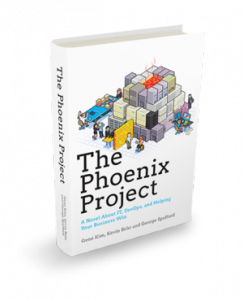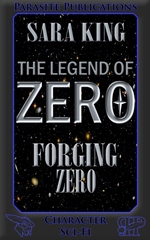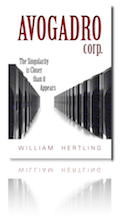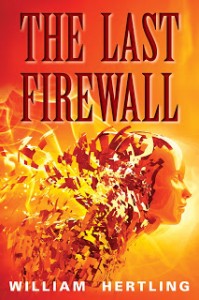2013 wraps up my first full year running my own blog. Overall, I’d say I’m pretty pleased. Here are a few of the statistics from the blog and a couple of lessons learned.
Monthly Archives: December 2013
My 2014 reading goals and list
As I mentioned in my “Books to Read in 2014” post, I did a lot of recreational reading during 2013. I’m planning to continue my reading binge in 2014. My goal is to finish at least 2 books per month and hit 25 (or more) for the year. I’d like to mix in a few more non-fiction, business books, too.
Since my Amazon wish list is currently over 60 items, I’m not going to have a hard time finding content. Here’s a look at the top 20 books I’m planning to read in the upcoming year.
Books to read in 2014
I read 20 books in 2013, which is the most recreational reading I’ve ever done in one year. In fact, since July 2012 I’ve read 26 books. I’ve documented all of them on this blog, and you can see my review of each book by clicking here or on the “Book Reviews” category in the sidebar.
My reading binge started after heeding a recommendation by venture capitalist Brad Feld. I follow his blog, and after seeing numerous reading recommendations on his site, I stumbled upon an article he wrote titled, “Why I Read Science Fiction“. Since I am also a believer that reading shapes your subconscious thoughts, I found these lines from his post particularly relevant (the bold, underlined emphasis in the following quote is mine):
When I think about all of the information I synthesize both by going backward in time and reading forward (Dick, Vonnegut, Heinlein, Asimov) as well as starting today and going forward 5 – 30 years (Clarke, Suarez, Stross, Banks, Stephenson, Gibson, Sterling) I realize that I’m creating a subconscious framework in my brain for a lot of the stuff I’m investing in. Sometimes it maps directly; sometimes it’s the stuff that misses that it so interesting.
After seeing this post, it occurred to me that stretching my imagination with some hard science fiction might help me understand where technology is headed and how I could incorporate in my business. I started out by reading William Hertling’s Singularity Series, which started with Avogadro Corp. In a nutshell, I was hooked. Since then, I’ve consumed a lot of science fiction related material, along with a few nonfiction and classics mixed in.
Based on what I read over the last 18 months, here is what I would recommend to start off your reading list for 2014 (click any of the titles for a link to my book reviews). By the way, these are all from my “Must Reads“. You can click here to see my latest recommendations throughout 2014.
Recommended Reading List for 2014
- Amusing Ourselves to Death by Neil Postman
I have to put the only nonfiction book on this list at the top. Absolute must read if you want to understand how the technology around us is shaping society. The most amazing part is that this book was written 30 years ago and is more relevant now than it was then. - Singularity Series by William Hertling
- Book 1 – Avogadro Corp.
- Book 2 – A.I. Apocalypse
- Book 3 – The Last Firewall
Excellent hard science fiction series that builds upon itself. The books must be read in order to get the full effect.
- Daemon and Freedom by Daniel Suarez
A two-book hard science fiction series that will make the NSA surveillance programs feel like child’s play considering what’s possible, and then again…. - Silo Series by Hugh Howey
An interesting look at a dystopian future that becomes more plausible the more you read. Be careful, once you get started, it’s hard to put down.
- The Origin Mystery Series by A.G. Riddle
- Book 1 – The Atlantis Gene
- Book 2 – The Atlantis Plague
These action-packed books will stretch your imagination, and then some. As with the other series, must be read in order, or you’ll be lost.
- Terms of Enlistment by Marko Kloos
A dystopian future about the haves and have-nots. There’s a lot of military action and strategy in this story coupled with planetary exploration and colonization. - Nexus by Ramez Naam
What would happen if we could tap into our brain to control it and link it with others. The possibilities are limitless, and Naam explores them in this fictional thriller. - Brave New World by Aldous Huxley
A timeless classic. After reading Postman’s Amusing Ourselves to Death, you’ll want to pick it up, even if you’ve already read it when you were in high school – worth re-reading. - Ender’s Game by Orson Scott Card
Another classic that worth’s reading before you see the movie version.
I have a pretty big wish list for 2014 that I’ll be publishing in the next couple of days. In the meantime, if there are any books you’ve read over the past year that you’d recommend, please leave them in the comments.
Book review: The Atlantis Plague
 While browsing for my next read, I noticed that The Atlantis Plague by A.G. Riddle was available. Since I liked The Atlantis Gene a lot, I figured the sequel would be worth reading. The reviews were overwhelmingly positive, and it didn’t hurt that I could “borrow” it from the Kindle lending library. That was an added bonus.
While browsing for my next read, I noticed that The Atlantis Plague by A.G. Riddle was available. Since I liked The Atlantis Gene a lot, I figured the sequel would be worth reading. The reviews were overwhelmingly positive, and it didn’t hurt that I could “borrow” it from the Kindle lending library. That was an added bonus.
Our education system is broken, and here’s why
Over the past 15 years, I’ve gotten a first hand look at the education system as my four children have progressed through it. Unfortunately, from my perspective, it’s broken.
Book review: The Phoenix Project
 Over the summer, a friend of mine (Andrew Schmitt) told me about The Phoenix Project: A Novel About IT, DevOps, and Helping Your Business Win by Gene Kim, Kevin Behr, and George Spafford. Since I’m running a software development shop these days, he thought I’d find it interesting, especially since it was written in the same format as The Goal and Critical Chain by Eliyahu M. Goldratt. For anyone not familiar with Goldratt’s work, this means the book is a fictional novel that contains relevant concepts, teachings and lessons that can be applied to business. In the case of The Phoenix Project, the story is about the IT division of an auto parts company . The business concepts are about how to more efficiently develop and release software projects.
Over the summer, a friend of mine (Andrew Schmitt) told me about The Phoenix Project: A Novel About IT, DevOps, and Helping Your Business Win by Gene Kim, Kevin Behr, and George Spafford. Since I’m running a software development shop these days, he thought I’d find it interesting, especially since it was written in the same format as The Goal and Critical Chain by Eliyahu M. Goldratt. For anyone not familiar with Goldratt’s work, this means the book is a fictional novel that contains relevant concepts, teachings and lessons that can be applied to business. In the case of The Phoenix Project, the story is about the IT division of an auto parts company . The business concepts are about how to more efficiently develop and release software projects.
Could this be the biggest issue facing America?
I found this video describing wealth distribution in the United States interesting, very interesting, as well as a bit shocking. It’s worth the 6+ minutes of your time to watch.
If you watch this on YouTube and click on “Show More” under the video, you’ll see links to the data sources used to make it. I haven’t personally read through the sources to verify the data. There’s also brief commentary about the video at the site Upworthy, which was where I originally found it.
The takeaways
For starters, it’s clear that the difference in wealth between the poor, middle class, rich, and super-rich has grown in the last 35 years and continues to widen. I’m not sure if the other takeaway is
- that the average American’s perception of wealth distribution is skewed,
- the magnitude of the wealth inequality,
- the fact that those who are wealthy control the media that influences perception, or
- some combination of all of the above.
After reading so much Postman, I’d say I am most concerned that the media is in control of the message around wealth distribution and is influencing public perception. Since the rich, and in some cases super-rich, control the media, it’s in their best interest to promote a skewed perception of wealth inequality in order to keep the masses of people at the middle and lower income levels from demanding change. Truth be told, I find it surprising that this isn’t a bigger issue in the media given the level of wealth inequality.
Is uneven wealth distribution wrong?
To be clear, as he states in the video, I’m not against uneven wealth distribution and don’t feel it is wrong. After all, the United States is a capitalist country where those who work harder or take risks are permitted to be rewarded unevenly. It’s the primary reason the US is considered the “land of opportunity”.
However, as he concludes in the video, is one person’s value to a company worth more than 380 times another one’s? At some point, I do believe that there is a line that has to be drawn, somewhere.
Conclusion
At the end of the day, it’s good that we can have these discussions and debates out in the open. It’s also another reason why it’s so important for us to preserve the openness of the internet and to strive to make it available to all people in order to promote, permit, and provide access to multiple sources of information to those who seek it.
We need to expose perception bias and misconceptions on issues of all types, not just wealth distribution. I feel this is one of the biggest issues America faces – that we allow a select few to shape the message and discussion around our most critical, important topics. They will influence the message to fit their motives, which makes it difficult for the general public to tell the difference between facts, half-truths, and outright lies. Facilitating the free flow of information and allowing open, uncontrolled debate is one way (but certainly not the only way) to break up the control they have over the discussion.
Book review: Forging Zero
 Since my last two reads, Dust and The Last Firewall, were books from a series I was very familiar with (and liked a lot), I decided it was time to start something new. Forging Zero by Sara King had been on my wish list for a while, so I figured it was worth a shot.
Since my last two reads, Dust and The Last Firewall, were books from a series I was very familiar with (and liked a lot), I decided it was time to start something new. Forging Zero by Sara King had been on my wish list for a while, so I figured it was worth a shot.
The premise of the story is built around Earth falling under alien control. The aliens draft the planet’s children into their army by kidnapping them. The children they choose are all under the age of 10, except for a few older “recruits” in the early teens who are chosen as a means to demonstrate to the younger ones what happens if you step out of line. Only one of these older recruits survives, a fourteen year old named Joe Dobbs. When the children are numbered by the aliens for tracking, he is given the number zero, which becomes his nickname.
From there, the story focuses on their trek from Earth to the alien planet that serves as their training ground. Throughout the training, King expands on the characters as they are hardened into soldiers. The book is an interesting study of human motives, our drive to survive, our need to be rewarded, and our desire to be accepted by our peers. Eventually, a series of events that are foreshadowed throughout the story (and that I won’t spoil) take place forcing Joe to step forward and develop into the leader that he is destined to become. His nickname Zero, combined with the events of the story, make the name of the book, Forging Zero, a great choice.
The development of the environment and the characters are the strong suits of this book. King spends a lot of time creating an alien world that can be taken forward into future stories, which she has through the series The Legend of Zero. She also spends a lot of time describing the characters to help you develop an emotional attachment to them. As I found out in the afterword, It turns out to be the goal of the publisher, Parasite Publications. As they put it:
…we want to produce memorable, sympathetic characters that reader will still be thinking about years after finishing our books.
Overall, Forging Zero is well written and a good story, but I wouldn’t put it in my must read category. The story drags a bit, and it takes a while to learn the slang, euphemisms, alien types, and technical terms that King uses throughout the book. Many times, I found myself unsure of a term or phrase, but I didn’t want to go back and try to find it to understand the meaning. Eventually, by the second half of the book, I was comfortable with the environment that King created, but it made the beginning of the book hard to get through. In fact, it was one of the few times that I considered putting a book aside and starting something new. I’m glad I didn’t, because it was worth finishing.
Bottom line, if you’re looking for an interesting sci-fi book that is focused more on the characters than the technology, then Forging Zero would be a good book to pick up. Since I like a more balanced approach that engages my imagination through the technology, I’m planning to move onto to a different series and away from The Legend of Zero.
Will ELOPe become a reality?
 In the William Hertling book Avogadro Corp., character David Ryan and his engineering team develop a machine learning algorithm called the Email Language Optimization Project, or ELOPe for short. As Hertling writes through character David Ryan in the book:
In the William Hertling book Avogadro Corp., character David Ryan and his engineering team develop a machine learning algorithm called the Email Language Optimization Project, or ELOPe for short. As Hertling writes through character David Ryan in the book:
ELOPe works like a sophisticated grammar checker. As the user edits an email, we start to make suggestions about the wording to the user in the sidebar.
Behind the scenes, complex analysis is taking place to understand the user intent, and map it to effective language patterns we’ve observed in other users.
Ryan and his team succeed in developing ELOPe to the point of being too successful. The ELOPe algorithm develops a mind of its own, and in a bid to garner more computing resources for its machine learning algorithm, threatens to take control of the world.
The references to Avogadro Corp. and its AvoMail email tool are clearly meant to reference Google and Gmail, but the story is an obvious work of fiction. The premise of an artificial intelligent, machine learning algorithm that can read and respond to your emails seems pretty far fetched.
Then I saw this article last week on Mashable – Google Patent Will Let Software Do Your Socializing.
The patent describes a bot that would learn your “voice” by studying your social media accounts and then suggest updates and replies that you should make for future posts. It sounds eerily similar to ELOPe, right down to being developed by Avogadro Corp. Google. Are we already well on our way to seeing ELOPe become a reality?
Just seeing a reference to the filing of this patent brings back the memories of Avogadro Corp. and artificial intelligence run amuck. Hopefully, the creators of this new social media bot at Google will read Hertling’s Singularity Series and heed its warnings. I can at least hope that the Google engineers build in the necessary precautions to protect us from the machines in case they spiral out of control, right? At least that’s what I’m going to assume so I can sleep peacefully at night.
Book review: The Last Firewall
 Having read Avogadro Corp. and A.I. Apocalypse, the first two books in the Singularity Series, it was with great excitement that I picked up The Last Firewall by William Hertling. I wasn’t disappointed. I highly recommend it, especially if you’ve read the first two books.
Having read Avogadro Corp. and A.I. Apocalypse, the first two books in the Singularity Series, it was with great excitement that I picked up The Last Firewall by William Hertling. I wasn’t disappointed. I highly recommend it, especially if you’ve read the first two books.
Hertling does a great job in The Last Firewall of building upon the story arc he introduced and developed in the first two books. In particular, I like how he ties all three books together through the characters and the technology. It would be possible to read The Last Firewall without picking up the first two books, but I wouldn’t recommend it. The story won’t make as much sense, the technology won’t be as believable, and the characters won’t be as deep. To get the most of out of the series, you need to read all three in order starting with Avogadro Corp.
